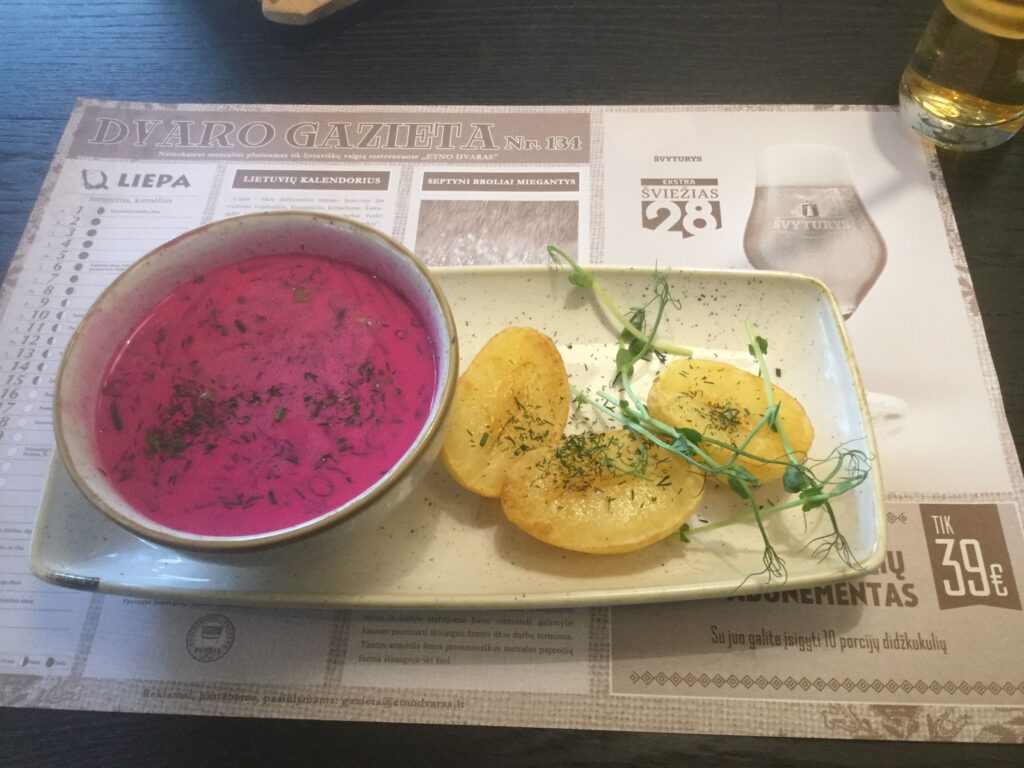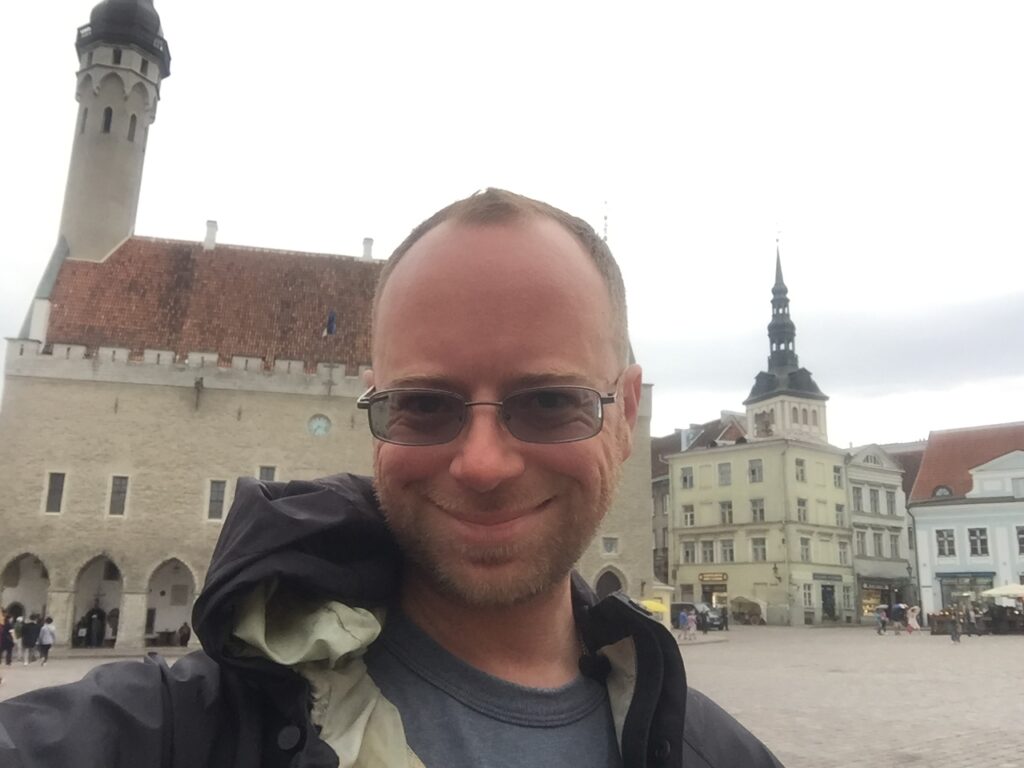I woke up early today, even after the many rounds with my mates from Room 3. I decided to take the time and walk back down to Cathedral Square and just sat there watching Vilnius go by. I then headed back, packed up my stuff, and said my goodbyes. One of the things I had been doing is if I had a great experience with someone or somewhere, I would give little Ghiradelli chocolates to those involved. I wished that everywhere on my journey could be as lovely as Vilnius.
I hiked back to the bus station, through the Gates of the Dawn, and past Vlad and Donnie. I arrived, got a coffee, and waited for my bus. It was an uneventful ride, which was alright by me. A few hours later, I arrived in the middle of downtown Riga. Luckily, my hostel was about a 10-minute walk from the station through the surprisingly urban streets of Riga. I checked in, dropped off my things, and headed out.
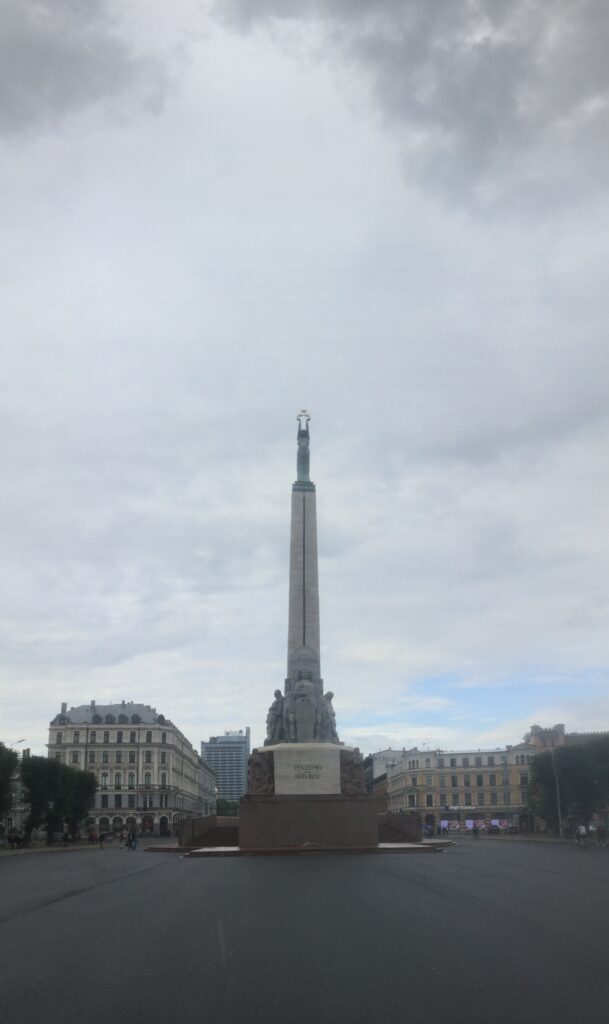
My first stop was the Freedom Monument which was constructed to commemorate the soldiers that died during the War for Independence of Latvia from 1918-1920 from the Russian Empire. Their attention was focused elsewhere with the Russian Revolution of 1917 afterall. Then something incredibly weird happened. As I was taking a picture of the monument, some man walked up to me dressed in a suit, holding a duffel bag. He spoke to me in Russian, then English. He asked me where I was from. I told him the US. He then extended his arm asking me if I could take his duffle bag. I looked him in the eye, then the bag, then the eye again and said no, turned on my heels a hurridly walked away. Having been an inadvertent drug mule in my life twice, I did not want to push my luck, especially in a foreign country.
I made my way to a post office and sent a postcard to my nephews. As I was walking through the streets, I was gobsmacked by the seemingly endless supply of beautiful women. I recalled that one of the most attractive women I ever dated was of Latvian extraction, so that made a lot of sense.
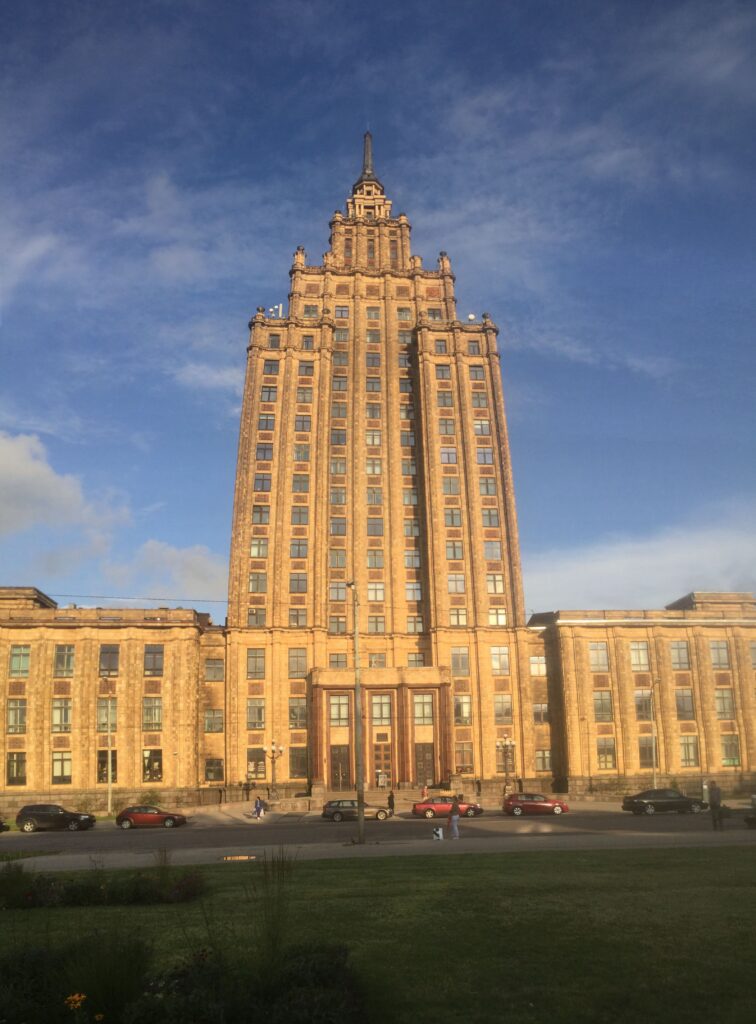
After getting some food, I walked around some more and stumbled upon a miniature version of a building built in the same style of the Palace of Science and Culture, which was very cool. This building was the Latvian Academy of Science. Apparently, this building was built to commemorate Stalin’s 75th birthday on December 18th, 1953. Luckily for the world, he died on March 5th of that year. But work was already underway and they decided to keep it.
I walked back to my hostel, showered, and made my way to my room that had since become populated with young women. I was not complaining. However, being this far north and in summer, the sun was still out at 11 pm making it very difficult to sleep.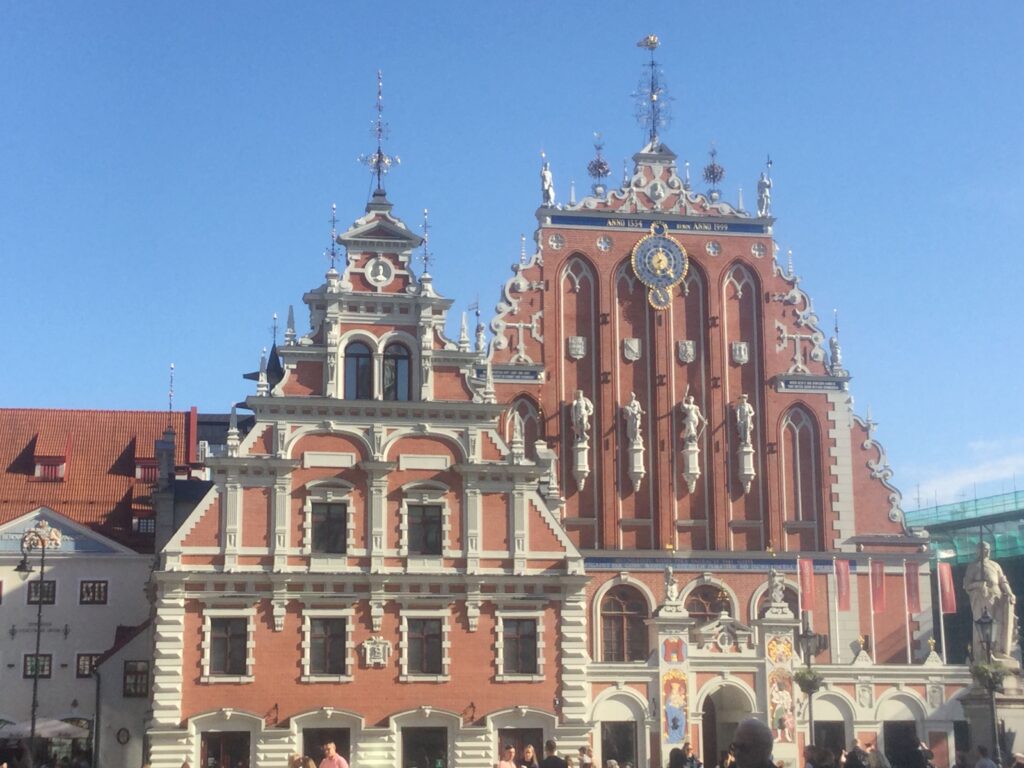
The next day I got up, had brekkie, and headed out for my walking tour. The guy running it, Philip, was a portly Aussie of Lativian descent that came back when the Iron Curtain was lifted. I didn’t really like him from the start, but it was a good tour. He did know a lot of history, especially in regards to monuments and architecture. However, he was also typically European, making fun of Americans, the President, and even called me out because he thought I was texting when I was taking notes on my iPod. He also started making fun of Trump and his supporters then looked to me to gauge my reaction. Whenever this happened when I was abroad, I plastered a “keep it up, motherfucker” smile on my face.
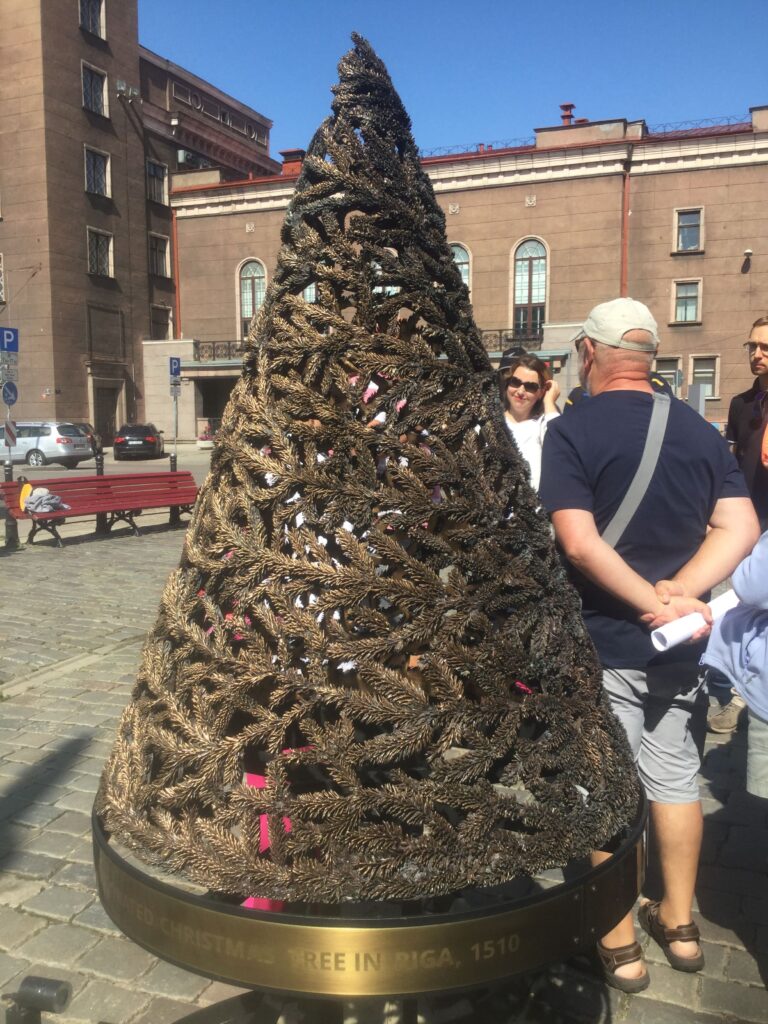
However, I did learn a lot on the tour. When we walked around Old Town, I learned that the House of Blackheads guildhall (a place for unmarried merchants, shipowners, and foreigners started in the 14th century) was where the first Christmas tree was displayed. Pagan Latvians brought pine trees inside on the Winter Solstice as a sign of hope that winter would be over soon. German merchants found out about it and thought they could do better. They decorated a tree in the House of the Blackheads but because it was too pretty, they brought the tree out to the courtyard in 1510. It caught on to the rest of the world as a way to commemorate the birth of Christ. Yet, another pagan tradition utilized by the Christians to increase adoption.
Another fact, apparently, was that Peter the Great’s wife Catherine I that briefly ruled Russia upon his death was an illiterate peasant girl that he met while her father was translating the Bible into Latvian in Moscow. He loved her and Latvia so much that even though he had just built the beautiful city of St Petersburg, he briefly entertained the idea of moving the capital of Russia to Riga. Seeing how it was an important seaport for the region did not hinder his decision. However, St. Petersburg remained the capital, but that did not stop him from building up Riga as a second major port.
Yet another fact was that Vera Mujina, the famous Soviet Latvian sculpture artist saved the Liberty statue in her hometown of Riga by declaring it art. Given the habit of Communist destruction of things that do not support the state, let alone undermine it, this was no small feat. Her prominence was so respected it was not touched.
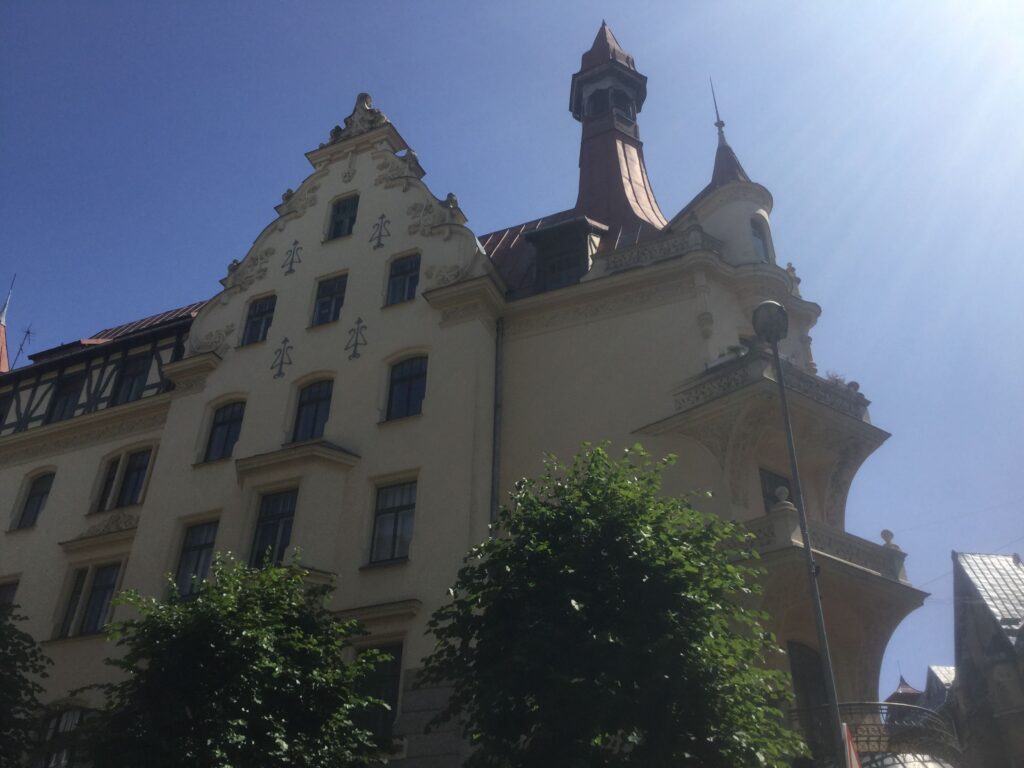
In Riga, Mikial Eisenstein was the Latvian architect of Art Nouveau, a very important style of architecture that overtook much of the world during the late 19th and very early 20th Centuries. He only made 24 buildings. Compared to other Baltic countries, Lativa was very wealthy already due to its port status. Since there were a lot of Nouveau Riche at this time, they needed fancy new buildings and Art Nouveau was the style of the times.
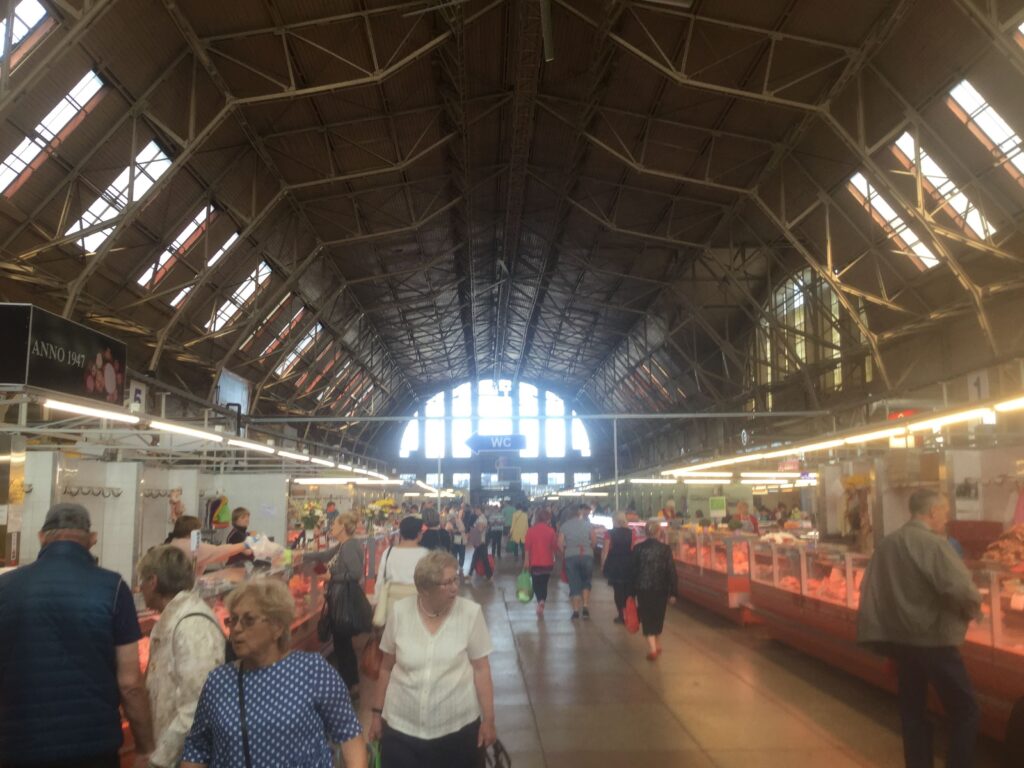
I then walked over to the central market that were former Zeppelin hangers. They had been converted into markets, souvenir shops and food courts. While trying some of the local beer I looked around and was incredibly impressed by the sheer size.
I was feeling a little homesick so I then headed to the local cineplex and bought a ticket for Spiderman: Far from Home. The interesting thing about the film is that while it had an English audio track, it had two different subtitles going simultaneously; Latvian and Russian. I would come to find out why soon.
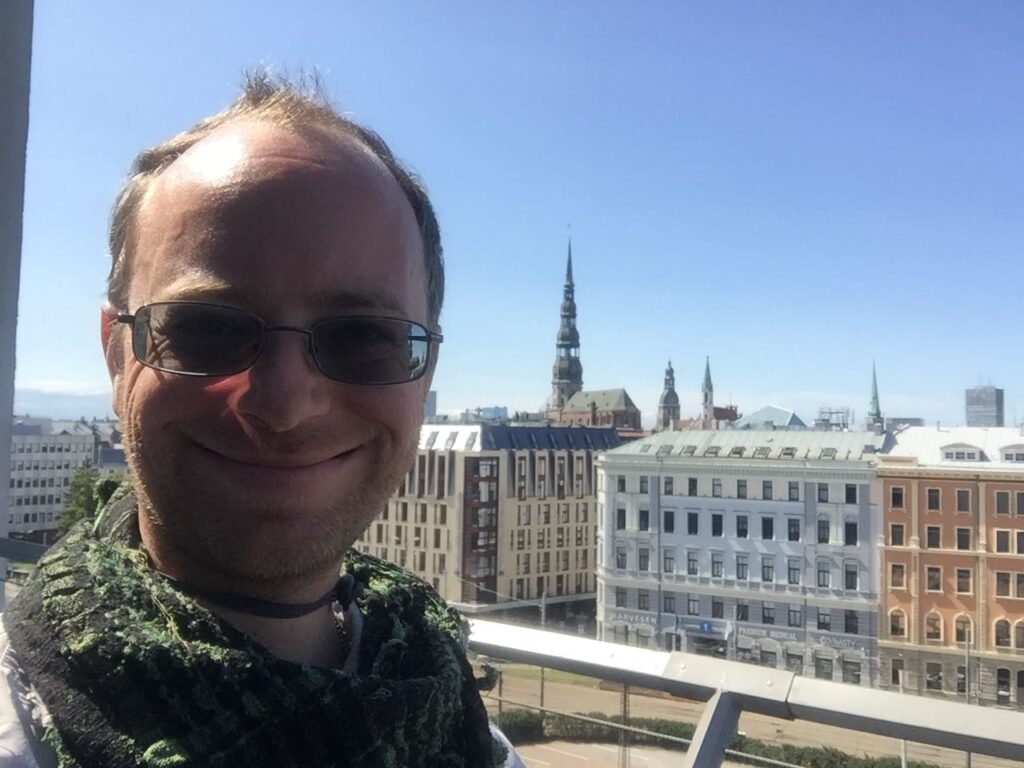
I walked around a litte, then got some dinner and went home. A pretty uneventful night. Although there were throngs of screaming women everywhere, as apparently, Ed Sheeran was in town.
The next morning I got up and went to the KGB Corner House. In typical Baltic/Soviet black humor they say that from this building’s balconies, it is the only place in Riga to get a clear view of Siberia. Luckily, I got there just in time for the English tour. It was a variation on a theme of what I saw in Vilnius, but still very disturbing. There were countless acts of torture, beatings, imprisonment, and executions within these walls.
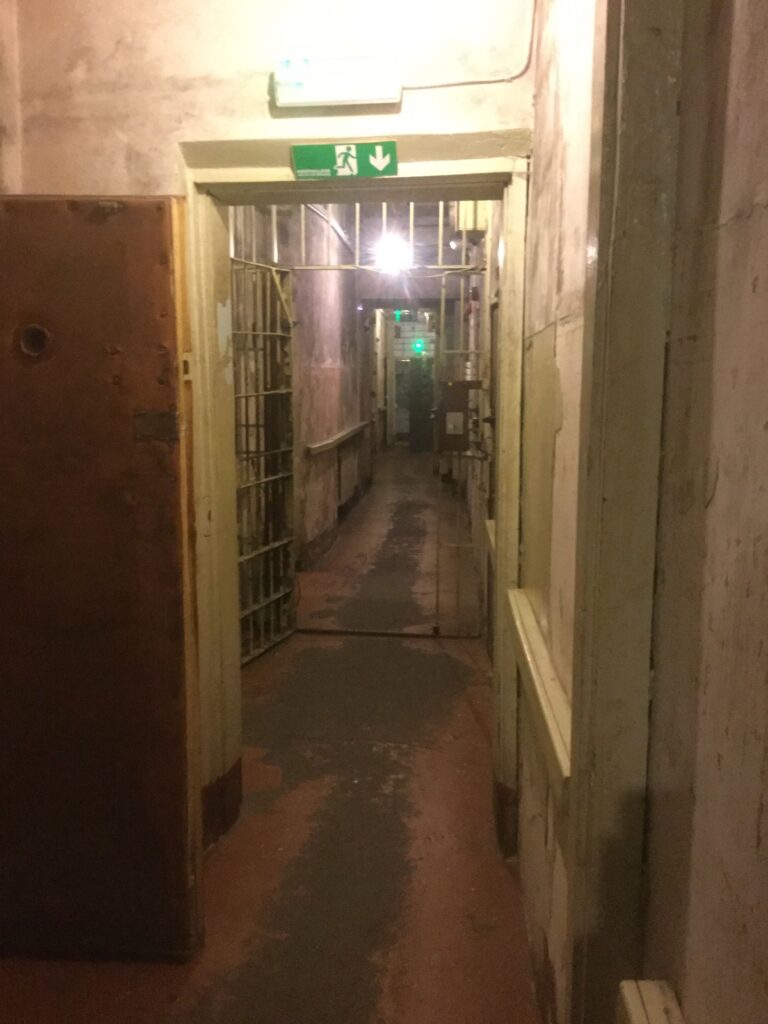
Apparently, after the Soviets were outed by the Nazis, a history professor and his students were invited to comb their archives. This is how the museum was able to learn so much about what actually happened there. Unfortunately, when the Soviets came back into power after the War, the people that guarded the archives needed to flee to Western countries. If they didn’t, they would surely find themselves as the newest residents of the prison as they knew too much already.
The Corner House was in ceaseless operation until 1991, a full year after Latvia declared its independence from the Soviet Union. The last head of the Secret Police of Cheka was ordered to return all the files they accumulated back to Moscow. But he only did half. These included cards with the identities of targets as well as informants. The cards he did not return were smuggled out in “cheka bags” which had just been collected and codified and released in a database in the last year. The reason for that is of course blackmail. Given the tumultuous business of independence, imagine being a politician running for office that had his name on one of those cards as being an informant to the Soviets. How much would one pay to keep that information private? Old habits, I guess.
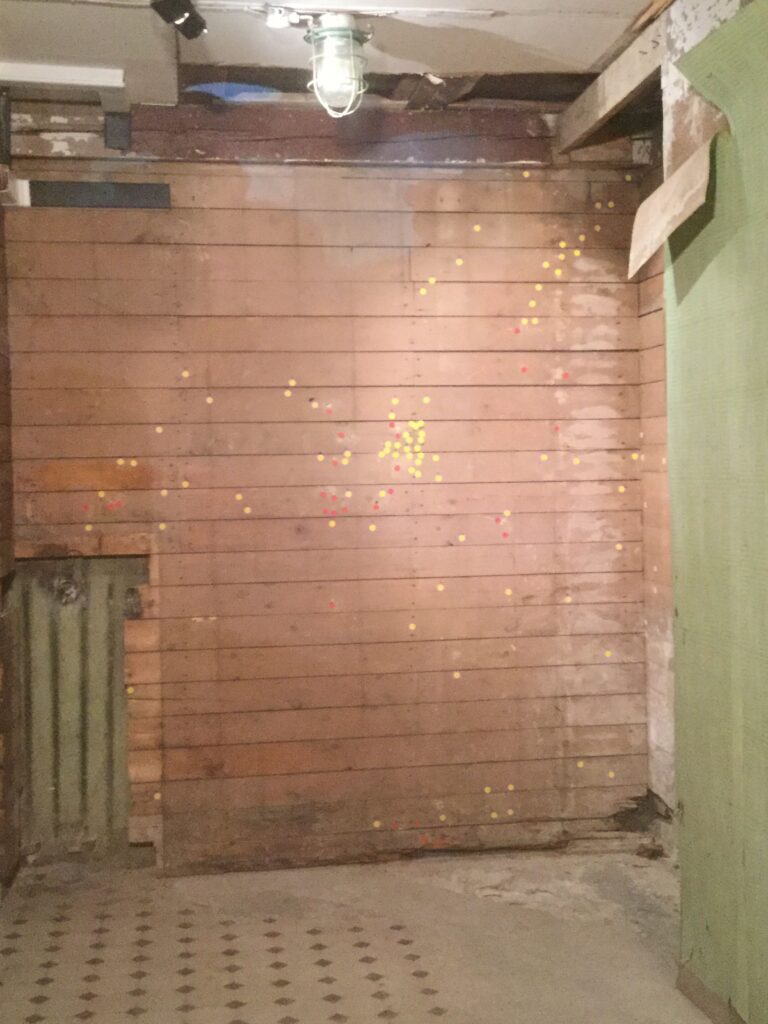
Another interesting aspect to this was the execution chamber. It had three sets of walls: 1 wooden, 1 concrete, and another wooden. The forensic investigators found bullet holes in the deepest walls, congruent with the idea that executions were carried out there by the Cheka which started during the first Soviet reign. When the Nazis came, they added concrete. When the Soviets came back, the promised only executions were carried out at the central jail and then eventually in Moscow. Yet there were still bullet holes in the third wall. On record, 187 executions happened, but the guide said it was much more based on the bullet holes and on forensic evidence.
After the Corner House, I headed to the Museum of the Occupation of Latvia. It was free, so that was good. Much like Lithuania, Latvia had various governments during an incredibly short period. What I did not know is that the Soviets signed a treaty in 1920 promising Latvia its sovereignty, which they promptly broke 20 years later. There was also a Latvian contingent of Forest Brothers, fighting their Russian and German invaders.
Another interesting aspect, and thus the need for two sets of subtitles, was that during the Soviet era, the government offered the down and out of Russia land in their newly acquired territory. Many Russians moved to Latvia for a better life. The sad thing is that there was a trade; while Russians moved to Lativa for the better, hundreds of thousands of Latvians had their homes and property taken and were moved to Siberia.
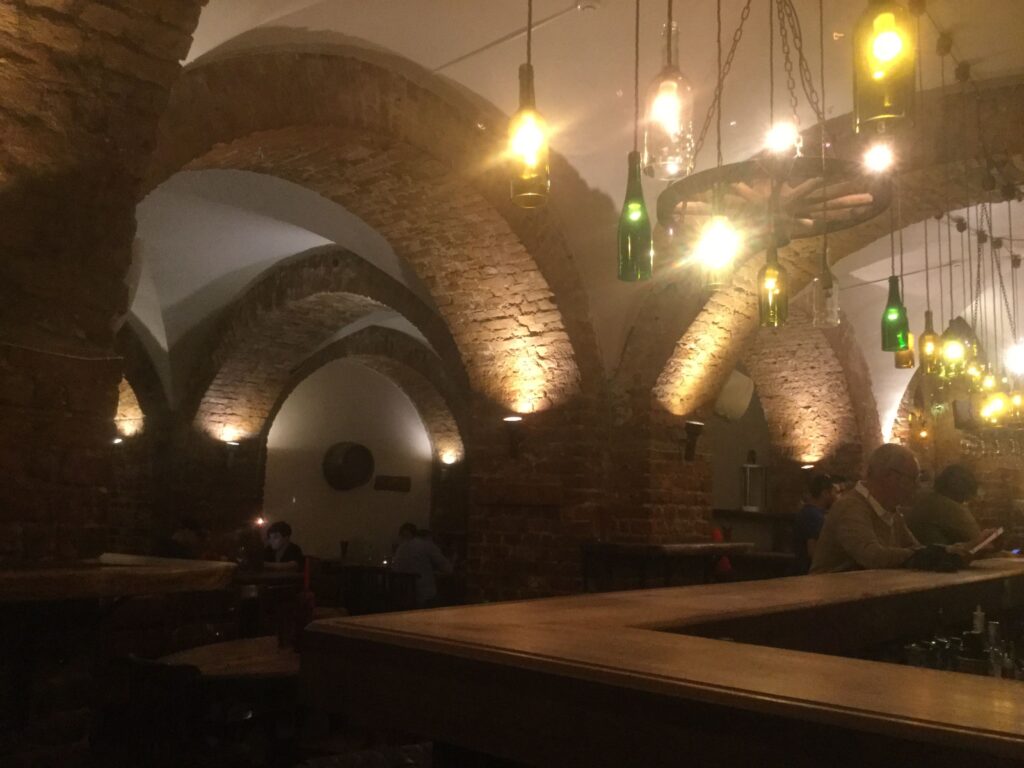
After the museum, I was feeling sluggish, so I headed back to the hostel for a nap. I got up and headed to a place to eat that was recommended by my Vilnius friends, The Folk Club Ala. It was located off the main square and it was a fun little basement club/restaurant. I had a cider, some friend herring fingers, Latvian meatballs, and cheesecake. However, this would be my first encounter with a delightful little drink called Black Balsam.
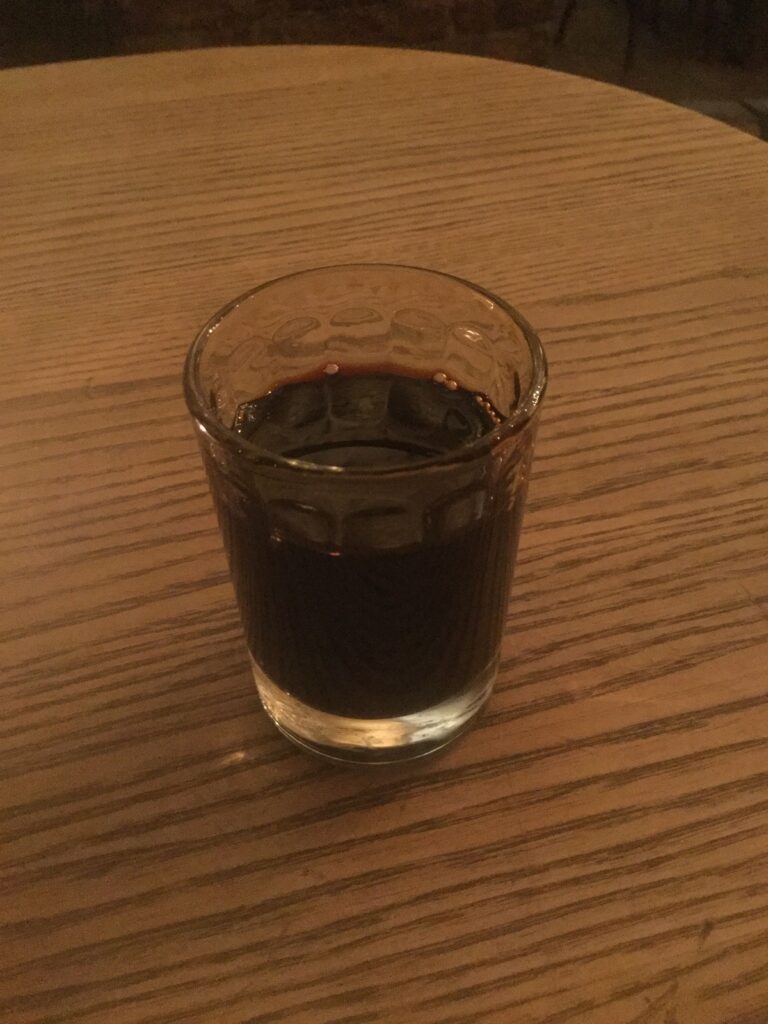
Black Balsam is ubiquitous in Latvia. Created in 1752 by a pharmacist from Riga, Black Balsam is an herbal liqueur that is not only smooth but very tasty. Every store has some, even if they do not sell drinks. All you would need to do is ask and someone would have it in a back room. It also comes in a variety of flavors. After sampling them all, Black Cherry was my favorite. After my fill of food and drink, I then headed back to the hostel to end the day.
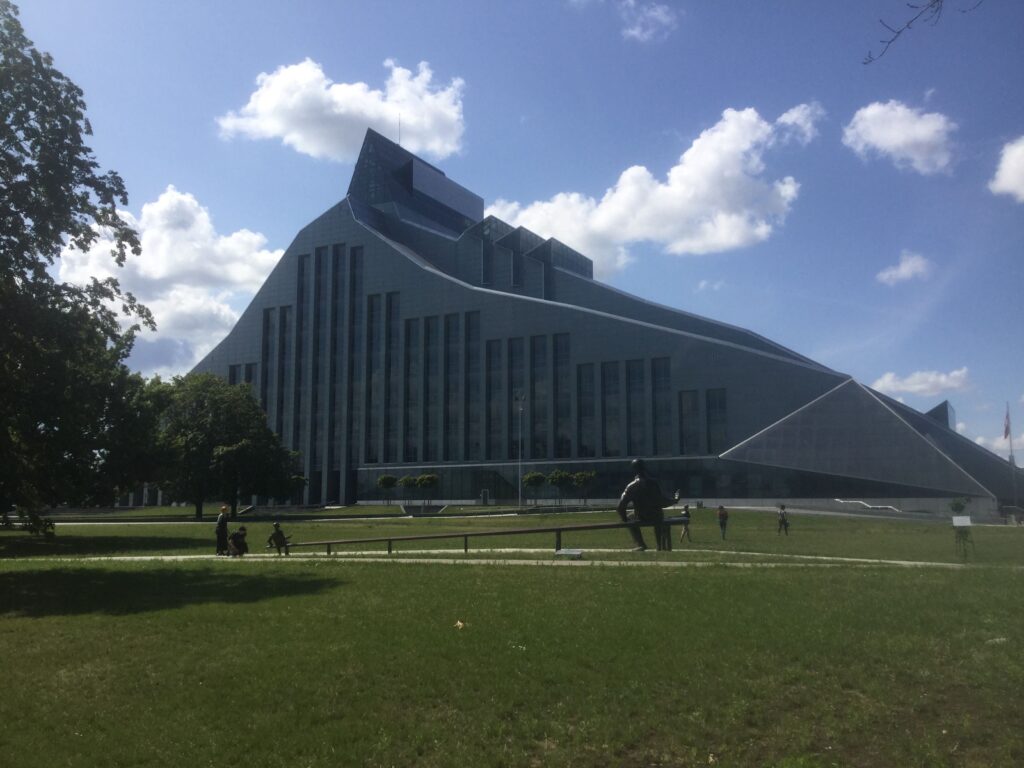
The next day I really did not have anything planned. I got up and headed across the Daugava River to one of Riga’s public libraries to check it out. I think the different libraries of the world offer incredible insight into the people to whom there are supposed to cater. Except it was closed.
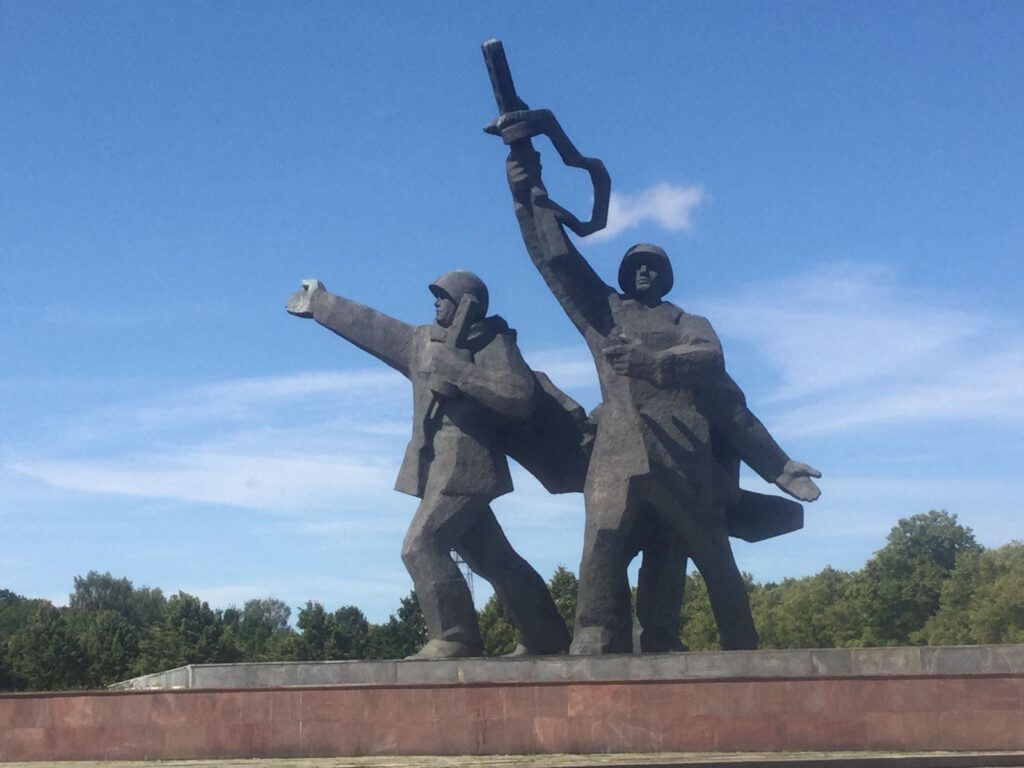
I continued on, down the main street as I saw something in the distance. As I got closer, I realized it was a Soviet monument to the Great Patriotic War, what they call World War II. Now, if there is one thing the Soviets did well, it was monuments. I remember when I was traveling around Moscow, there were some very impressive ones, for good reason. I then headed back across the river.
One of the more interesting things about Riga is that there was a little canal cutting through a park where people could rent boats and paddle around. While I had no desire to do this, it was fun to watch. There was a little circular tea house in the park, so I headed over, got some tea, and sat down on one of the benches. A cute young lady sat down close to me, but she took out a vape pen, an immediate turn-off. Strangely, some Hare Krishnas walked past me on the street with their cacophonous chanting and singing. I do not know why I was not expecting to see them in a Baltic country.
As it was a bit of a lazy day, I walked to an open barbershop in the northeast of the city to clean me up a little. When I was walking I noticed something quite interesting, a BitCoin brokerage house. This was the first brick-and-mortar place I saw in my travels that dealt exclusively with cryptocurrency. It was very cool to see. I guess why cryptocurrency is so attractive to a lot of people in the developing world is due to the asymmetric returns it can offer.
I walked around a little more. I got some supplies to make dinner, then watched YouTube for a bit then headed to bed.
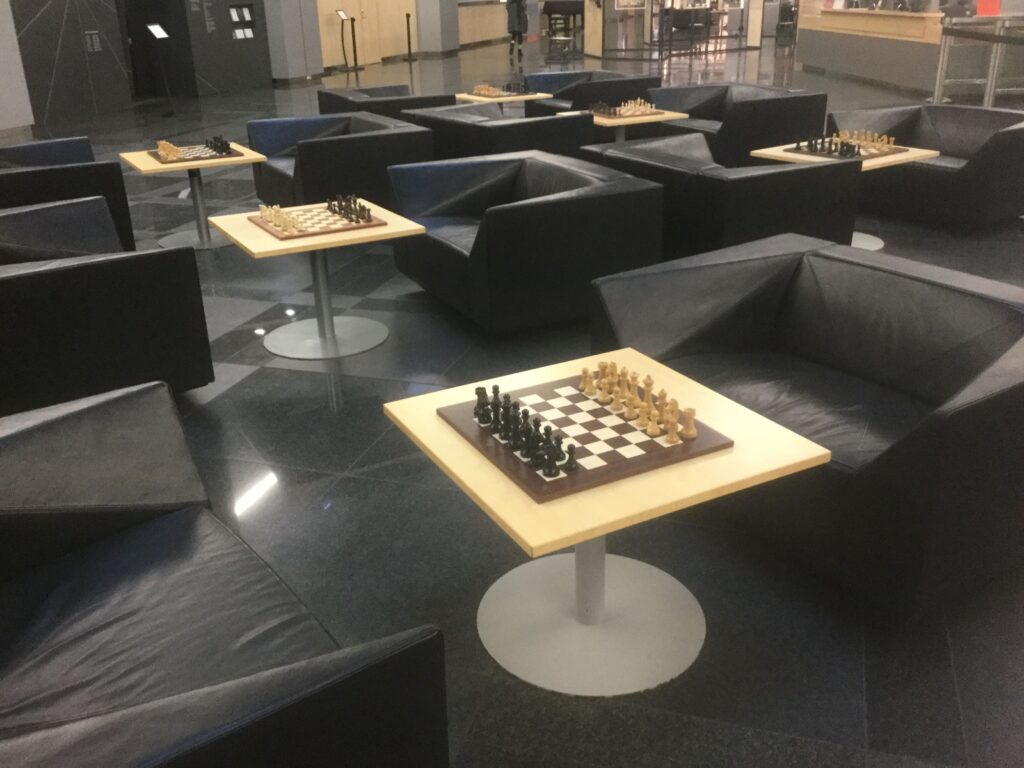
My last day in Riga started with a brisk jaunt back to the library. Only the ground floor was open because the was some sort of international chess competition going on. They also had a small museum talking about books during the War. I went back to the hostel where I started chitchatting with an Israeli guy. I then had a long international call with my friend Ted about possibly having a repeat of our time in Argentina.
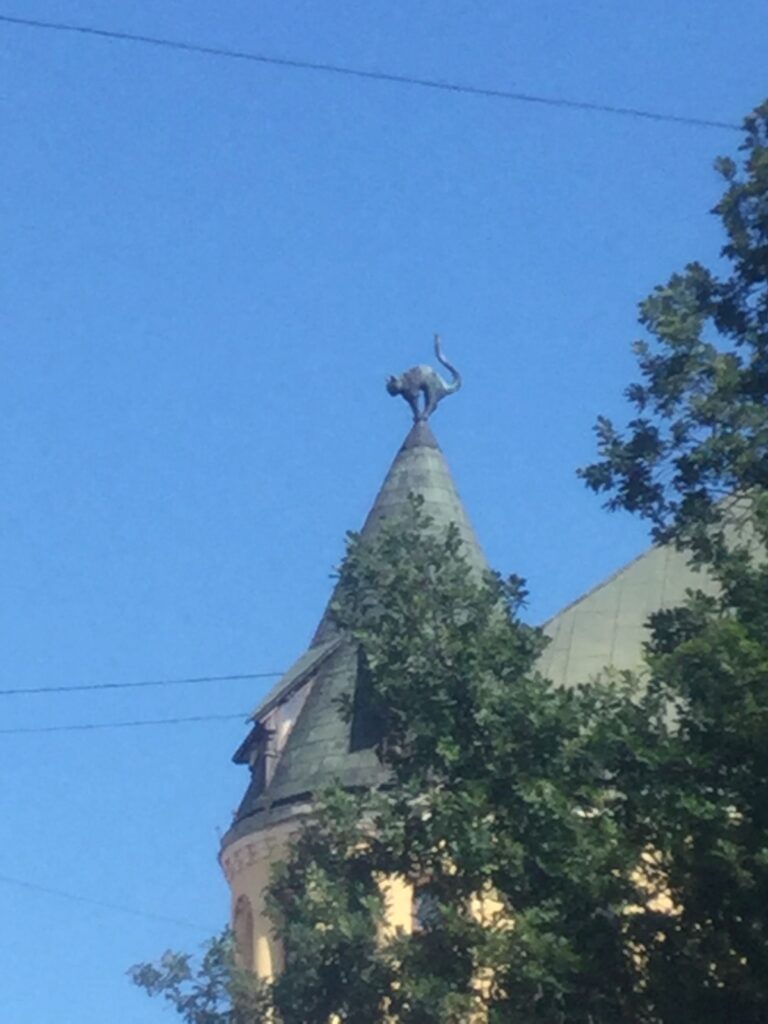
After my call, I decided I was on a mission, to secure a Riga Cat. Back on my walking tour, I was introduced to the legend. Apparently, there was a incredibly wealthy Latvian merchant that wished admittance into the very German-centric guildhall. His request for entry was denied. So, he decided to put on the roof of his house two black cat statues with their backs arched and their assholes facing the guild. You would think that is where it would have stopped. However, apparently, people were much more sensitive back in those days. The guild was so incensed, they sued the merchant to have the cats removed. There were actually court documents to this effect. However, the matter was settled out of court, with the cats being rotated so their posteriors were pointed elsewhere and the merchant was welcomed, although begrudgingly, into the guild.
I headed back to the Zepplin market, where they did not have any of these momentos available. I then went to the main square and found a little souvenir shop that had one. Succesful, I walked back to Folk Club Ala and had a flight of Black Balsam.
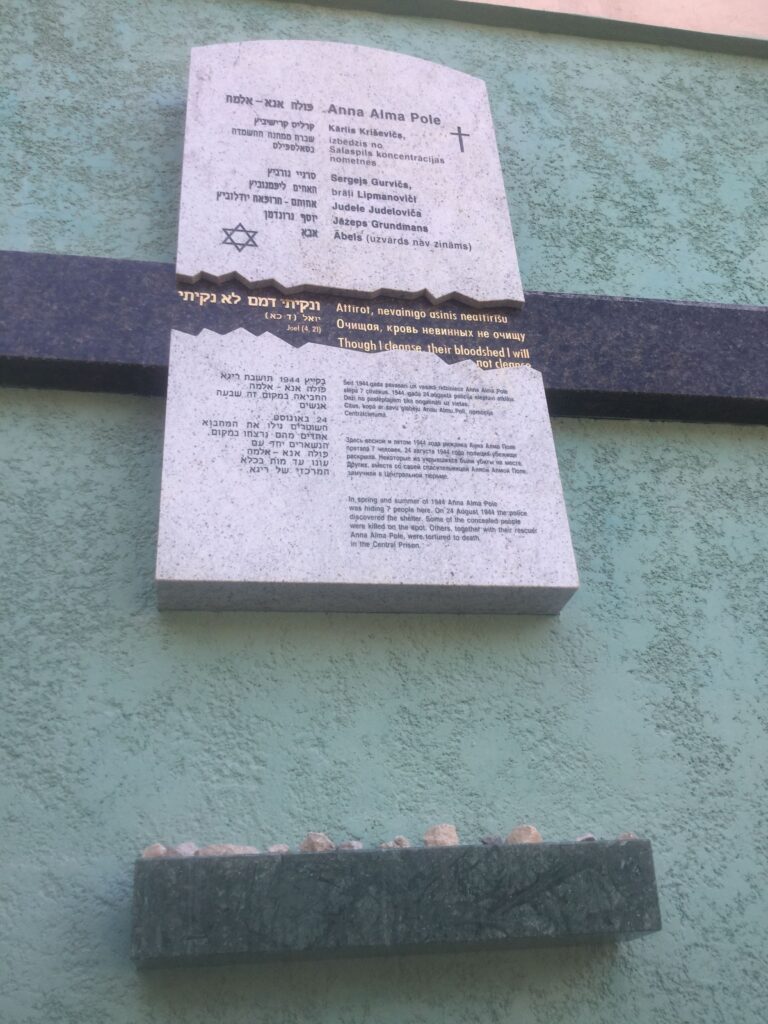
Even though I was surrounded in the grandeur of a little Art Nouveau city in the Baltics, it was very easy to forget this place was yet another theatre in a terrible war. This was brought to the forefront of my mind. As I was walking back, I noticed a placard on the side of a wall written in Hebrew, Latvian, and English. I stopped and it was a memorial to one Anna Poole. When Latvia was under Nazi control, much like in other parts of the newly acquired Reich, their version of race politics was the law. They wanted to deport or execute those that the state deemed inadmissible to live. However, Anna Alma Poole did not bow to these racists and hid people in her home, at her own great peril. Her wards were eventually discovered and some were killed in this very spot with Anna being tortured to death in the Central Prison. It was a stark reminder that even in the darkest of times, good people will step forward.
Afterward, I went back to the hostel and met my two new hostel mates, an Irishman and an American. David, the Irishman, was a student and John, the American, was a history teacher in the Ashville, North Carolina school system. He was on his summer vacation traveling through Europe, leaving his high-powered executive fiance at home. We all clicked and so we decided to go out and get some beers to bring back home. We drank all of them and decided we needed more so we headed back out to the same store. We played some card games with an Iraqi gentleman that was also staying at the hostel.
As we still wanted to go out, we headed through the park with the canals to one of the main entertainment blocks of the city. It was later, so a lot of the places started closing, except for one that had a few go-go girls dancing on stages. Of course, this was where we headed. Security reminded me of guys I had seen in Russia; hulks with no necks that were only muscle. We sat down at a table and got some beers. It is then I noticed two young women sitting down at a table close to us. They coquettishly looked over at our table. One beckoned me to join them. I left my friends and sat down. The one that spoke the best English kept asking me if I wanted food or drinks, maybe a bottle of wine or champagne, not even my name. I knew what she was doing. I kept playing it off for a good 10 minutes before she got really frustrated. Even though they were not invited, they followed me back to the table where John and David were sitting. When she tried the spiel with John, he said in a Southern draw, “Darlin’, this ain’t my first rodeo.” She and her friend got up and left. The boys told me they were keeping an eye on me. They were concerned if I got up to leave with one of them, I would get jacked. I appreciated their concern but told them they had nothing to worry about. We went back to the hostel and all went to bed. They were going to Stolkholm in the morning and I was off to Tallinn.


